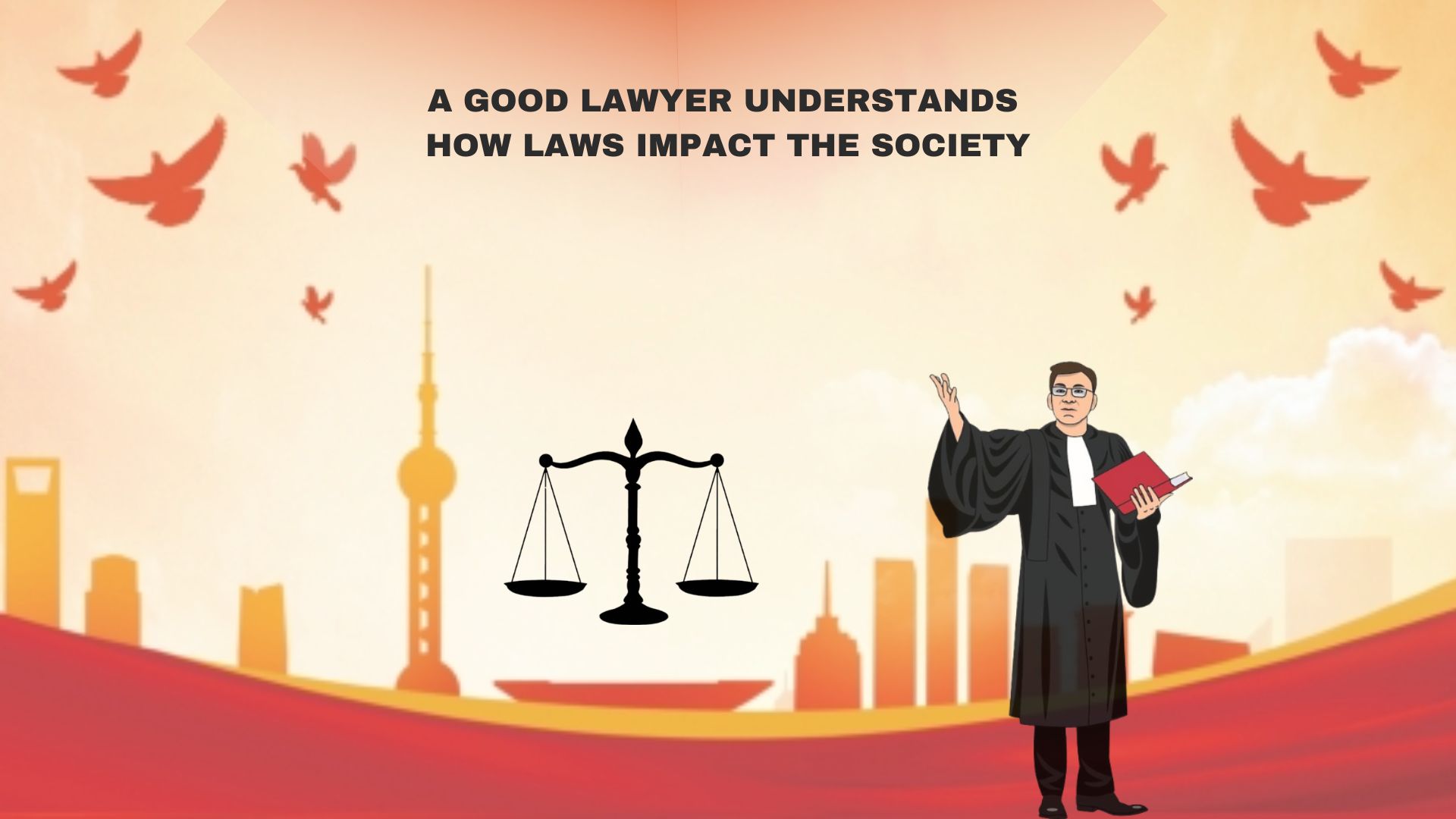Good lawyers must understand the intricate relationship between law and society. As BA LLB students at SMS Law College, Varanasi, we want you to grasp how laws shape and are shaped by societal norms – and not just as an academic requirement. But because we think it is a necessary foundation for your future role in the legal profession.
At SMS Law College, we want to nurture lawyers whose role in society goes beyond courtroom battles. We want to produce lawyers who can play a positive role in influencing societal change, advocating for justice, and ensuring that legal frameworks serve the public good.
In this post, we are suggesting a series of engaging exercises and real-world case studies to help you delve into the legal impact on society, exploring both the positive and negative ramifications of judicial decisions. We’ll also examine the influence of law on society, understanding how legislation can drive social progress or perpetuate challenges.
How Law and Society are related to each other in India?
The relationship between law and society in India has been intricated – influencing each other over time. Indian laws aren’t set in stone; they’re shaped by evolving societal needs and values.
The abolition of Sati, for example, was made possible by the social reform movement led by Raja Rammohan Roy against its cruelty. Recently, the decriminalisation of homosexuality reflects a shift in Indian society towards inclusivity. These are examples of how the influence of law on society is intertwined with society’s influence on law.
This interplay also underscores the role of lawyers in society, who help us navigate these shifts and ensure that the legal impact on society aligns with our evolving societal values.
Some landmark cases law students can analyse to understand how societal factors influenced the legal outcome are:
- K.S. Puttaswamy v. Union of India (2017): Recognition of the right to privacy as a fundamental right, addressing concerns about government surveillance and data protection.
- Navtej Singh Johar v. Union of India (2018): This landmark judgment decriminalising homosexuality showcases the changing societal attitudes towards LGBTQ+ rights.
- Joseph Shine v. Union of India (2018): The decriminalisation of adultery challenged traditional societal norms and sparked conversations on gender equality and individual autonomy.
The Role of Lawyers in Society is Crucial
Lawyers play a pivotal role in society, extending far beyond mere legal representation. They uphold justice, defend rights, and ensure fair application of the law.
Ethical responsibilities bind lawyers to act with integrity, diligence, and accountability, directly impacting society’s trust in the legal system. Mahatma Gandhi, for example, was a lawyer – and we can safely say that it was his legal acumen that fuelled significant societal change.
The influence of such lawyers demonstrates the profound legal impact on society. As BA LLB students, understanding the role of lawyers in society and the influence of law on society can inspire you to make meaningful contributions.
Some role-playing exercises law students can engage in to practice ethical decision-making and societal advocacy are:
- Engage in Community Legal Clinics: At SMS Law College, we have legal clinics you can participate in to understand the role of lawyers in society practically. In this way, you can experience firsthand the legal impact on society through providing free legal advice to clients.
- Debate on Social Issues: You can also participate in structured debates on pressing social issues, showcasing the influence of law on society. These debates can help you better understand the law and society dynamics.
- Mock Trials: We regularly organise mock trials focusing on ethical dilemmas. They can help you understand the profound legal impact lawyers can have on society.
- Public Policy Drafting: You can also try drafting and advocating public policies addressing societal issues. This exercise illustrates the influence of law on society poignantly.
How to understand the legal impact on society?
Legal decisions significantly influence society, shaping norms and behaviours. Positive impacts include upholding justice and equality, while negative outcomes can arise from biased rulings. Laws can perpetuate social issues by reinforcing inequalities or mitigate them by promoting fairness and reform.
We suggest you evaluate the potential societal impacts of recent legal rulings in small groups. You can discuss how these rulings have positively or negatively affected society.
Some recent legal rulings you can discuss are:
- Decriminalisation of Section 377
- Sabarimala Temple entry case
- Supreme Court ruling on triple talaq
- Citizens Amendment Act (CAA)
How to Exercise the Influence of Law on Society?
We deem it necessary for our BA LLB students to understand how Indian laws shape social behaviour and norms. Regulatory laws significantly influence public behaviour, promoting order and ethical conduct. For example, the ban on single-use plastics in 2022 has heightened environmental awareness and we can see some of the people already favouring cloth bags or reusable bags instead of polythenes.
Similarly, the Information Technology (Intermediary Guidelines and Digital Media Ethics Code) Rules, 2021, is trying to curb misinformation, fostering responsible digital conduct. The laws against dowry and caste discrimination are also causing a shift in societal attitude – especially in younger generations.
These laws illustrate the profound impact legislation can have on societal norms, underscoring the importance for future legal professionals to understand and leverage this influence effectively.
As an exercise, students can create a policy proposal for a new law intended to address a current social issue, justifying its potential societal benefits. The discussion and process of this exercise will help this topic a bit more.
Conclusion
Understanding how Indian laws shape social behaviour and norms is crucial. Key insights highlight the dynamic relationship between law and society and the vital role lawyers play in shaping and responding to societal changes. As future legal professionals, leveraging this knowledge can profoundly impact society positively.





